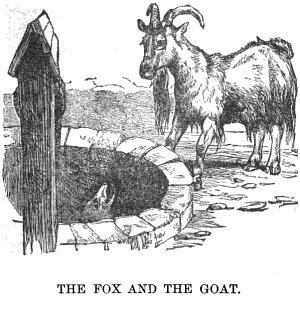TEC said-
Adamah, of course all those other examples of people heard. Perhaps they did not hear in words; there are other ways the Spirit speaks. That is how they knew what to DO. They did the will of God because they heard it and did it.
And how would the Spirit accomplish that, exactly?
Heck, take Abel, the first example cited in the Chapter as one of the men who had exemplary faith:
Hebrews 11:4 (NASB)
4 By faith Abel offered to God a better sacrifice than Cain, through which he obtained the testimony that he was righteous, God testifying about his gifts, and through faith, though he is dead, he still speaks.
How exactly was Abel able offer "a better sacrifice" than Cain's, such that Abel would receive God's praise and be viewed as righteous?
Did God whisper the answer in only Abel's ear ("Abel, I've really got a hankering for tasty BBQ, so kill the firstborn of your flock and burn it!")? God didn't do the same for Cain?
That kind of interpretation would violate the definition of faith given just a few sentences earlier, since 'faith' is said to rely on "unseen evidence" (or more generally speaking, imperceptible evidence, where despite the complete lack of any verifiable or confirmatory external proof, the faithful individual nevertheless acts with full confidence, based only on trust or hope AKA blind obedience).
So in your explanation, please try to avoid the use of figures-of-speech from the world of sensory perception (eg words like 'speak', 'hear', 'saw', 'felt', 'perceived,' etc, as those all are NOT "imperceptible", but relate to perceivable sensory stimuli).
Point being, try to connect the dots as you might, but when the Bible speaks of faith, it refers to acting without any other reason to justify the action, aside from what the believer HOPES is true, being completely DEVOID of discernable or detectable evidence. Faith is what drives JWs to knock on doors, even die by refusing blood, as they're trusting that they'll be rewarded with eternal life spent enjoying marathon panda-petting sessions. Faith is no joke: people are willing to DIE in the name of faith (confusing their obstinance and closed-minded commitment to dogmatic beliefs with it).
That's an irrational and dangerous attitude to take, as anyone who acts on faith actually is (to borrow a line from the far-more practical advice from Aesop's Fables) NOT "looking before they leap":

One day, a Fox fell into a deep well and couldn't climb out.
A thirsty Goat soon came to the same well, and seeing the Fox, called down to ask whether the water was good.
Pretending to be happy (and not in despair), the Fox lavishly praised the water, saying how absolutely delicious it tasted, anncouraging the Goat to come down and join him in the well.
The Goat, thinking only of his thirst, stupidly jumped down.
As he drank, the Fox informed him of the difficulty they were both in and suggested a scheme for their common escape.
“If,” said the Fox, “you put your forefeet up on the wall and bend your head down, I will run up your back like a ramp and escape, and then I will help you out afterwards."
The Goat agreed and so the Fox leaped upon his back. Steadying himself with the Goat’s horns, he safely reached the mouth of the well...and took off as fast as he could!
When the Goat complained of the Fox breaking his promise, the Fox turned around and cried out, “You old Goat! If you had as many brains in your head as you have hairs in your beard, you would never have gone down without making sure there was a way back up. Only a foolish fellow exposes himself to dangers from which he has no means of escape!”
Moral: "LOOK BEFORE YOU LEAP".
Adam
